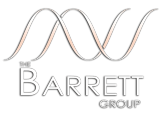Client: Eric Smith was senior technology specialist of flow assurance for a Texas-based, engineering consultancy servicing the oil and gas industry.
Industry: Engineering, Oil & Gas, Information Technology, AI, Consulting
Function: Engineering, Technology
Challenge: When Eric’s employer was bought out by a company whose culture was a poor fit, Eric needed an exit strategy, but his skillset was so niche that he struggled to find – let alone land – an appealing job.
Process: Eric found it valuable to rewrite his resume, engage in interview prep, and learn how to use LinkedIn better, but, more than anything, he credits his success with getting comfortable in picking up the phone to talk to people.
Landing: Eric was offered a position as AI Solution Director for a large, enterprise AI software firm for which the responsibilities were surprisingly aligned with Eric’s unique range of skills – and at a compensation level that well exceeded his expectations.
Study: Eric Smith was a senior multiphase technology specialist of flow assurance at a small, Texas-based, boutique engineering consultancy servicing the oil and gas industry. He built custom software solutions for flow assurance engineers, who endeavor to get oil and gas out of the ground with as few problems as possible. After working there almost five years, Eric’s company was bought by a large, volume-oriented firm specializing in hydrocarbon measurement and analysis. Unfortunately, it wasn’t a good culture fit. Employees began quitting in droves.
Eric saw the handwriting on the wall. Six months after the acquisition, he began sending out resumes.
“They were losing people left and right, especially from engineering. I needed an exit strategy,” said Eric. “I looked on LinkedIn, but most of the jobs I saw there in my field were entry-level positions. And convincing HR staff to consider me for higher-level jobs felt impossible. I have a PhD in multiphase fluid dynamics and few people know what to do with that.”
Eric landed a few interviews, but they all went nowhere. In one particularly frustrating situation, Eric was invited to interview seven times for a position over multiple weeks, then asked to produce a lengthy demo project, only to be told that the company was imposing a hiring freeze.
After eight months of such disappointments, Eric, feeling helpless, decided on a different approach. He researched “recruiter help” and found The Barrett Group (TBG). His first task was to step back and evaluate his career in the Clarity Program.
“Clarity is where you do self-reflection and make sure that your search is aligned with your goals. It was very helpful,” said Eric. “Lisa Levesque was my Clarity coach, and it was really nice to work with her.”
Eric found no surprises regarding his career goals, but the exercises he did with Lisa were very useful in informing other aspects of his job search. Eric came to see, for example, that having a job that gave him the flexibility to attend to his family when the need arose was very important to him. He also discovered room for improvement in his communication style.
“I’m very direct in conversations. I have a hard time with small chat. But in the business world it’s sometimes important to have conversations simply to build relationships. It was a good lesson for me to remember I must take time to ask people about their kids, or whatever, when I’m talking to them.”
After Clarity, Eric began meeting regularly with Executive Career Consultant George Schulz. As Eric had neglected his network for years, their first task was to rebuild his social capital.
“George was exactly what I was looking for. He was a good coach and wonderful to work with,” said Eric. “We started with the phone calls, which scared me to death. I’m at the upper range of the Millennial generation. We don’t call people on the phone!”
Eric shuddered to think he would be asked to call people that he hadn’t been in touch with for five years and tell them he was looking for a job. But he was relieved to hear from George that connecting is the name of the game.
“George said to call, catch up, and offer to help people in whatever way I can. If they reciprocate, then great. But I should not push anything. It was tough, but it was a really good experience. It gave me confidence and I found that people were happy to try to help me in return.”
Eric quickly saw how building social capital is tied to savvy LinkedIn usage.
“LinkedIn is an excellent networking tool that I was not utilizing. Being in the Oil & Gas industry, I should have contacts throughout Houston. It was neat to see how I could make connections and find potential new contacts in my field. I learned a lot about LinkedIn from George and have a much better idea of how to use it now.”
In addition to social capital building, Eric and George discussed interview skills. Eric was given 15 sample interview questions to answer, which George then compared to TBG’s suggested responses.
“George explained the optimal ways to answer each question. On salary, for example, he told me how I should speak to the topic during the first interview and then again after I’d received an offer, when I have more leverage. It was a good approach and very informative.”
Eric was happy to have his resume professionally reviewed, too. “George and the writing team told me the formula for a good resume: ‘What did I do?’ and ‘What impact did I have?’ That was very useful even if it was tough to measure my impact. George also impressed on me the importance of considering the mindset of employers, who are trying to make a business successful, and hiring managers, who must justify the expense of hiring someone to their bosses. The more I can illustrate my value on my resume, the better.”
Eric appreciated the coaching of all the elements of the TBG program. But the job he ultimately landed had unanticipated roots – his previous job search efforts. Four months after engaging TBG, Eric saw that the company at which he had interviewed seven times, only to be told of a sudden hiring freeze, had posted a new job. The company was a large, enterprise AI software firm and the position was the same position he had interviewed for but with a new title.
Eric called up the hiring manager.
“The hiring manager told me that I had submitted an excellent demo project and that it was clear I had a command of the project details. His reservation, however, was that it wasn’t clear that I had experience working at a high level.”
Eric seized the opportunity to explain how he had abundant experience in high-level work. Those qualifications had just never come up during Eric’s previous interviews with this individual. The hiring manager was soon convinced that Eric was the perfect person for the job and offered him the position of AI solution director. Even better, the compensation proposal far exceeded his expectations.
“I showed George the offer and he agreed it was great. There is a lot of value in getting a career professional’s opinion about compensation!”
Although the bulk of Eric’s efforts in pursuing this job were prior to engaging The Barrett Group, he credits TBG, nonetheless, for his success in landing it.
“The hiring manager had a hang-up with my candidacy that I was able to quickly resolve when I called him. But I would never have called him if I hadn’t gone through The Barrett Group Program. George coached me on how to call people in a way that made me feel comfortable and how to follow up appropriately on interviews. It was because of George that I called that guy and asked him what was up.”
In his new role, Eric, who is familiar with both data science and oil and gas, will bridge the gap between the company’s engineers and data scientists. He will also be involved with pre-sales, helping potential customers understand use cases for his company’s AI software – a role for which his newfound comfort in calling people will come in handy.
“This position is ideal for me. Flow assurance is a volatile field, and this job will help me broaden my exposure to new industries. And I am oddly perfect for the role. This position requires my specific set of skills. There is a huge range of stuff the company does that you need to have familiarity with and, somehow, I have exposure to all of it!”
Eric is very glad that he invested in TBG because, he feels, the tools he learned were crucial in his getting his new job, and they will continue to help him manage his career well into the future.
“Even though I’d found this job on my own, I would never have landed it without The Barrett Group! I think TBG’s Program was money well spent.”


